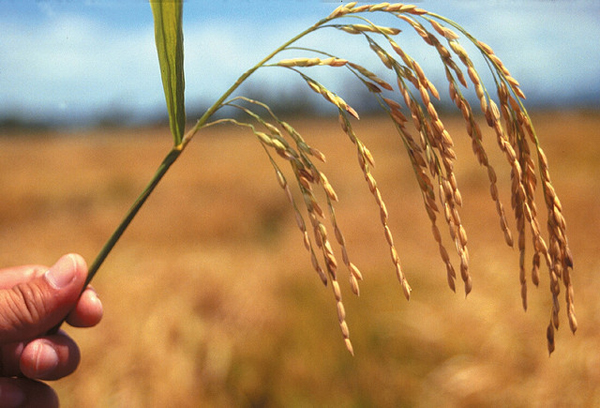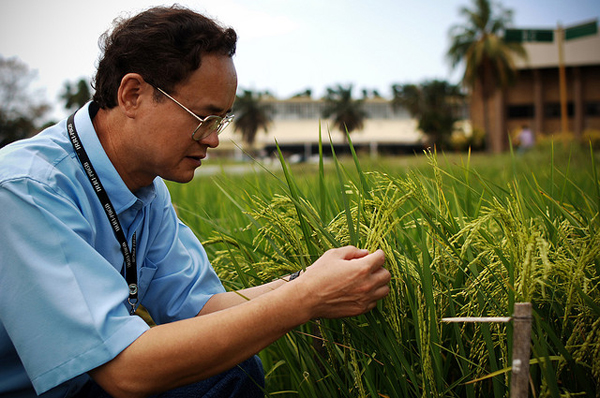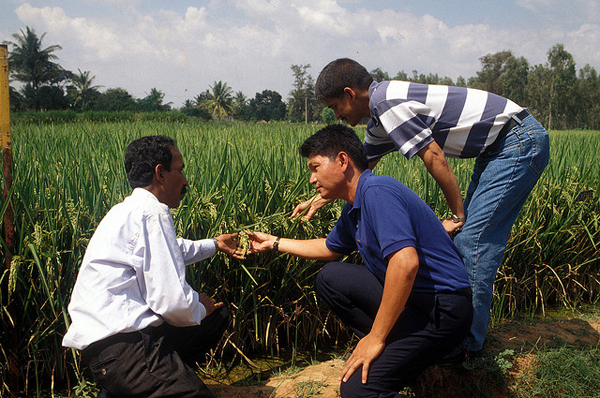Hybrid rice is a type of rice that has been bred from two very different parents. It can significantly outyield other rice varieties. IRRI is working with its partners to develop new and improved hybrid rice varieties.
Because hybrid rice can outyield other varieties of rice, it is a key technology that meets the increasing global demand for rice. In the 1970s, China’s hybrid rice breeding program averted an impending famine. Today, hybrid rice closes yield gaps evident in many areas. It also raises yield potential. Bountiful harvests mean that farmers earn higher incomes and rice becomes available and affordable to more consumers.

Our key target is to produce hybrid rice with consistently high-yield heterosis (hybrid vigor), good grain quality, tolerance to key environmental stresses, multiple resistances to insect pests and diseases, and high seed production yield.
We are now:
- Developing hybrid rice parents and hybrids, and seed production technologies
- Researching the science of rice heterosis (hybrid vigor) and other traits of hybrid rice
- Facilitating the development of close partnerships between the public and private sectors to promote hybrid rice research and development
- Carrying out multi-location varietal trials to select the best hybrid rice for different environments
- Intensifying agronomic research to maximize the benefits of hybrid rice cultivation

IRRI became involved in hybrid rice research in 1979, and since then, with our partners in the public and private sectors, we have led research, development, and use of hybrid rice in the tropics. More hybrid rice varieties are now becoming available that allow farmers to significantly raise rice yields and thus overall rice productivity and profitability.
The most poplar hybrid rice parents used in Asian countries outside of China have been bred by IRRI. They are being used in public and private hybrid rice development programs and have been commercialized across many Asian countries.
IRRI not only develops rice hybrid rice directly for farmers, but, importantly, we also support the pre-breeding hybrid rice programs of our public and private sector partners by providing promising hybrid rice germplasm (breeding material).
In 2008, IRRI established the Hybrid Rice Development Consortium (HRDC) which aims to renew and strengthen collaboration between the private and public sector, and improve hybrid rice technology dissemination. Through the HRDC, IRRI has been sharing a large number of hybrid rice varieties and parental lines with its partners.

Rice Today features
- A hybrid history (Rice Today Vol. 6 No. 4)
- The perfect marriage (Rice Today Vol. 10 No. 3)
- A hybrid pioneer (Rice Today Vol. 4 No. 2)

